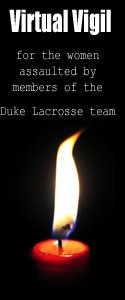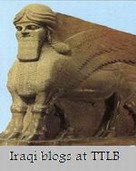Ugly is as Ugly Does
Love Notes
I don’t like Ugly Betty. I like Sianne Ngai’s recuperation of “Ugly Feelings.” I also like that she does not have a subtitle to her book. I waited until the Valentine’s Day to post. Why? It’s an ugly day for me, and I want to get out some of my bile but in an intellectually productive way, I hope. Where are our friends: shame and guilt? Or maybe they are just my BFFs. I should not relegate them to your bedroom or kitchen?
I really find it interesting that as I tried to run away from my discipline (English departments in general) and wanted to find new intellectual homes (American studies, interdisciplinary approaches, Affect studies, queer theory), I am navigating inside of literary analysis as a means of finding affect and engagement— from Feeling Backwards to Ugly Feelings. English professors!
I concentrated on Envy and Irritation and Disgust. The Gubar-Weigman murders were especially interesting since a million years ago I read Gilbert and Gubar’s The Madwoman in the Attic. Whiteness is really what is sticky in the filmic Single White Female and whiteness is also the ghost/ghastly which spooks our disciplinary hallways. We can be brazen in our writing, but if we speak it and act too uppity, then we might be punished, murdered, denied tenure, given a marginal voice, space. Poor WOC, you are so privileged. Is that all you are worried about? Tenure? Our sisters who don’t have Ph.D. have real problems.
I swear, I keep trying to write directly about this book, but my mind is cluttered these days with colonial missionary “feminists” who flood my field of
I am going to blame brain clutter on V day. today and it's hetero violences for my irritation, anger. It is a day of mourning and loss for me. recognition and silence.
Quicksand is an exemplary novel for talking about irritation, but I thought that Larsen’s Passing was also about irritation or more pointed (sexual) frustration. Deborah McDowell does an interesting queering of that text by making Passing not about racial passing but sexual passing. I wanted to go back and reread these novels but ran out of time. Passing has been on my mind a lot and thought it might be productive to reread that text. Ngai brought it back to my consciousness.
What about WOC politics and Intraethnic/racial battles and turf? Why not take on McDowell’s reading of Passing rather than carve out an obvious reading of irritation in Quicksand? Can we look at the chapter on irritation and maybe do a productive reading that puts WOC politics on the table? Would we be getting into intellectual quicksand? How are race and ethnicity places of soreness and irritation? Some people call it oppression Olympics and unproductive/destructive/ airing dirty laundry. Silences around the divisions within are ruptures; we have more outside irritants (larger institutional battles not just the academy but the national regimes that jepordize our very bodies/safety.)
Online Etymology Dictionary
spook (n.)
1801, from Du. spook, from M.Du. spooc "spook, ghost," from a common Gmc. source (cf. Ger. Spuk "ghost, apparition," M.L.G. spok "spook," Swed. spok "scarecrow, Norw. spjok "ghost, specter," Dan. spøg "joke"), of unknown origin. Possible outside connections include Lettish spigana "dragon, witch," spiganis "will o' the wisp," Lith. spingu, spingeti "to shine," O.Pruss. spanksti "spark." Meaning "undercover agent" is attested from 1942. The verb is first recorded 1867 in sense of "to walk or act like a ghost;" meaning "to unnerve" is from 1935. The derogatory racial sense of "black person" is attested from 1940s, perhaps from notion of dark skin being difficult to see at night. Black pilots trained at Tuskegee Institute during World War II called themselves the Spookwaffe. Spooky is from 1854.
Also thinking of Greenlee’s The Spook who sat by the Door as a literary ghost that haunts us and gets forgotten in the mainstream





.jpg)







 -->
-->
0 Comments:
Post a Comment
<< Home